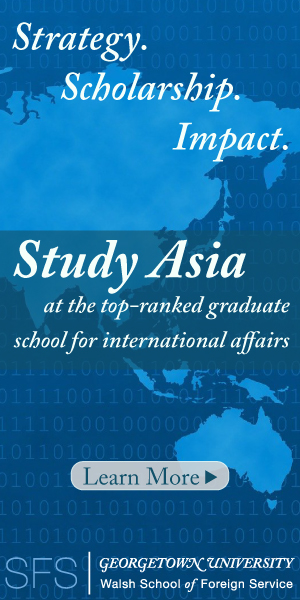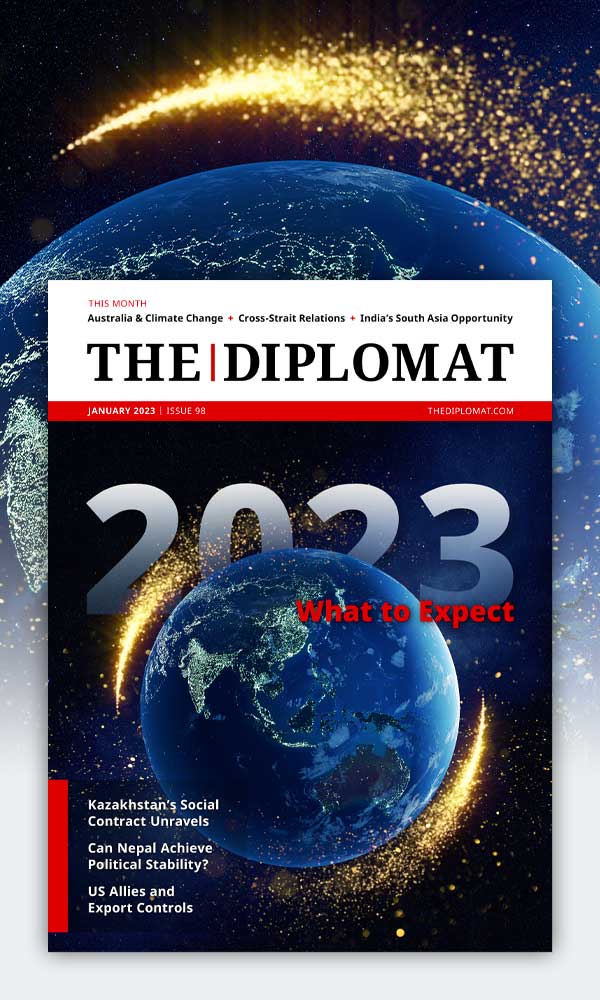| Welcome to the latest issue of Diplomat Brief. This week our top story explores the bombshell resignation of Vietnam’s president. We also have an interview with Nilanthi Samaranayake, director of the Strategy and Policy Analysis Program at CNA, on current trends in Indian Ocean security cooperation – and competition. |
| Story of the week |  | Politics President Nguyen Xuan Phuc’s DepartureWhat Happened: On January 17, Vietnam’s president, Nguyen Xuan Phuc, tendered his resignation, the latest domino to fall in a still-unfolding corruption scandal involving the country’s COVID-19 response. In one sense, the resignation was not unexpected; two of Phuc’s deputies during his stint as prime minister had already been dismissed from office due to their involvement in the graft scandal. But viewed from a longer-term perspective, it was shocking: None of Vietnam’s four top leaders had ever resigned mid-term before. As such, Phuc’s resignation marks a new era for Vietnamese politics. Our Focus: The snowballing graft scandal came amid a broader anti-corruption campaign spearheaded by Nguyen Phu Trong, the general secretary of the Communist Party of Vietnam (CPV). “These recent developments seem to indicate a new pattern in which the CPV is holding leaders accountable for their violations while allowing them to resign with grace and honor in order to protect the prestige of the party as a whole,” Quynh Le Tran writes in an analysis for The Diplomat. Trong himself has championed the idea of offering leniency to guilty parties in exchange for admissions of wrong-doing and resignations. “This policy change may be a response to the growing public concern over corruption in Vietnam,” Tran argued. What Comes Next: While the resignation of Vietnam’s head of state might satisfy public demands for justice in this specific scandal, it doesn’t do much to move the needle on overall accountability. “The vague terms of these departures” – which did not explicitly admit any involvement in graft or bribery, although it was heavily implied – “may have unintended effects, such as less accountability to the public and less transparency about the reasons for the resignations,” according to Tran. Meanwhile, Phuc’s surprise downfall could open up a new round of political infighting in Vietnam, where there is no obvious replacement waiting in the wings. Read this story |
| Behind the News | INTERVIEW Nilanthi SamaranayakeNilanthi Samaranayake, director of the Strategy and Policy Analysis Program at CNA, on the most pressing security threat to the Indian Ocean Region: “It’s important to consider non-traditional security issues such as environmental challenges faced by the region. The COP27 headlines have passed, but climate change is viewed as an existential threat by small states in the Indian Ocean.” Read the interview |
| This Week in Asia | Northeast Asia Lunar New Year Adds to COVID Concerns in ChinaJanuary 22 is the Lunar New Year – the single biggest holiday in China. After three straight years of pandemic-related restrictions on travel, a newly reopened China is expecting a surge of holiday journeys, as people return home to celebrate with loved ones. But the mass exodus to rural areas could cause a surge in COVID-19 cases in the places least equipped to deal with such an emergency. Find out more | South Asia Nepal Reels After Deadly Plane CrashOn Sunday, a flight carrying passengers from the Nepali capital of Kathmandu to the tourist town of Pokhara crashed in the mountains, killing at least 68 of the 72 aboard. It was Nepal’s deadliest air accident in 30 years; an investigation into the cause is still ongoing. Find out more | Southeast Asia Nobel Laureate Cleared of Tax Charges in PhilippinesMaria Ressa, the founder of Philippine news outlet Rappler, was acquitted of tax evasion charges on Wednesday, a victory for Ressa and Philippine journalism in general. The case against Ressa was widely believed to be revenge for Rappler’s critical coverage of the former Duterte administration. In 2021, amid a full-court legal campaign against her, she was awarded the Nobel Peace Prize for being “a fearless defender of the freedom of expression.” The latest ruling is a major win for Ressa, but she (and Rappler) are still fighting charges in other cases. Find out more | Central Asia Journalists in Kazakhstan Still Under PressureBeing a journalist anywhere in Central Asia isn’t easy. In Kazakhstan, despite promising legislation, journalists still find themselves under pressure. This comes often indirectly – teenagers paid to set a car on fire, a pig’s head mailed to the main office. Without a free press, however, society is doomed to darkness. Find out more |
| Visualizing APAC |  | Salma Ben, 50, a Muslim resident of Khambhat in India’s Gujarat state, stands in front of her burnt home after an episode of anti-Muslim violence in 2019. See the full picture |
| Word of the Week | Society 세계화Segyehwa, Korean for “internationalization” or “globalization,” became official Korean government policy in 1992. Find out more |
| In Case You Missed It | Webinar Mongolia: Politics and Protests in 2023In December 2022, Mongolians took to the streets of Ulaanbaatar en masse for a week of protests. The immediate cause was allegations of corruption in Mongolia’s coal industry, but the demonstrations became intertwined with general concerns about Mongolia’s economy, inequality, and lack of opportunities for young people. Also at play were larger political battles playing out between the ruling and opposition parties, and within the ruling party itself. With such a dramatic end to 2022, what should we expect from Mongolian politics in 2023? In case you missed our live discussion, you can check out the recording here. Watch the webinar |
|  |




